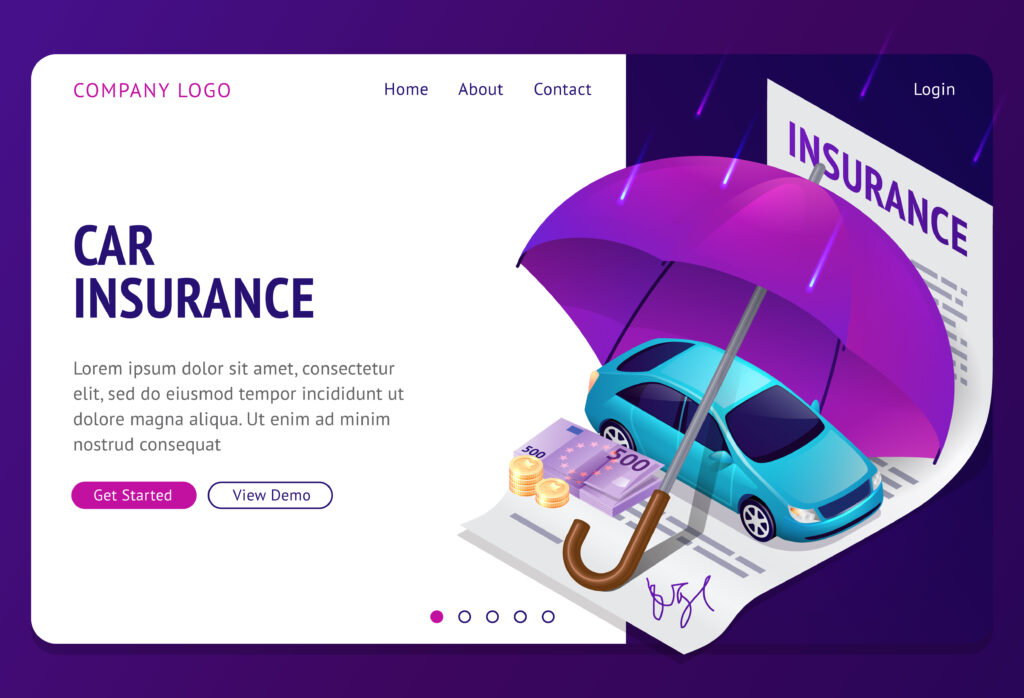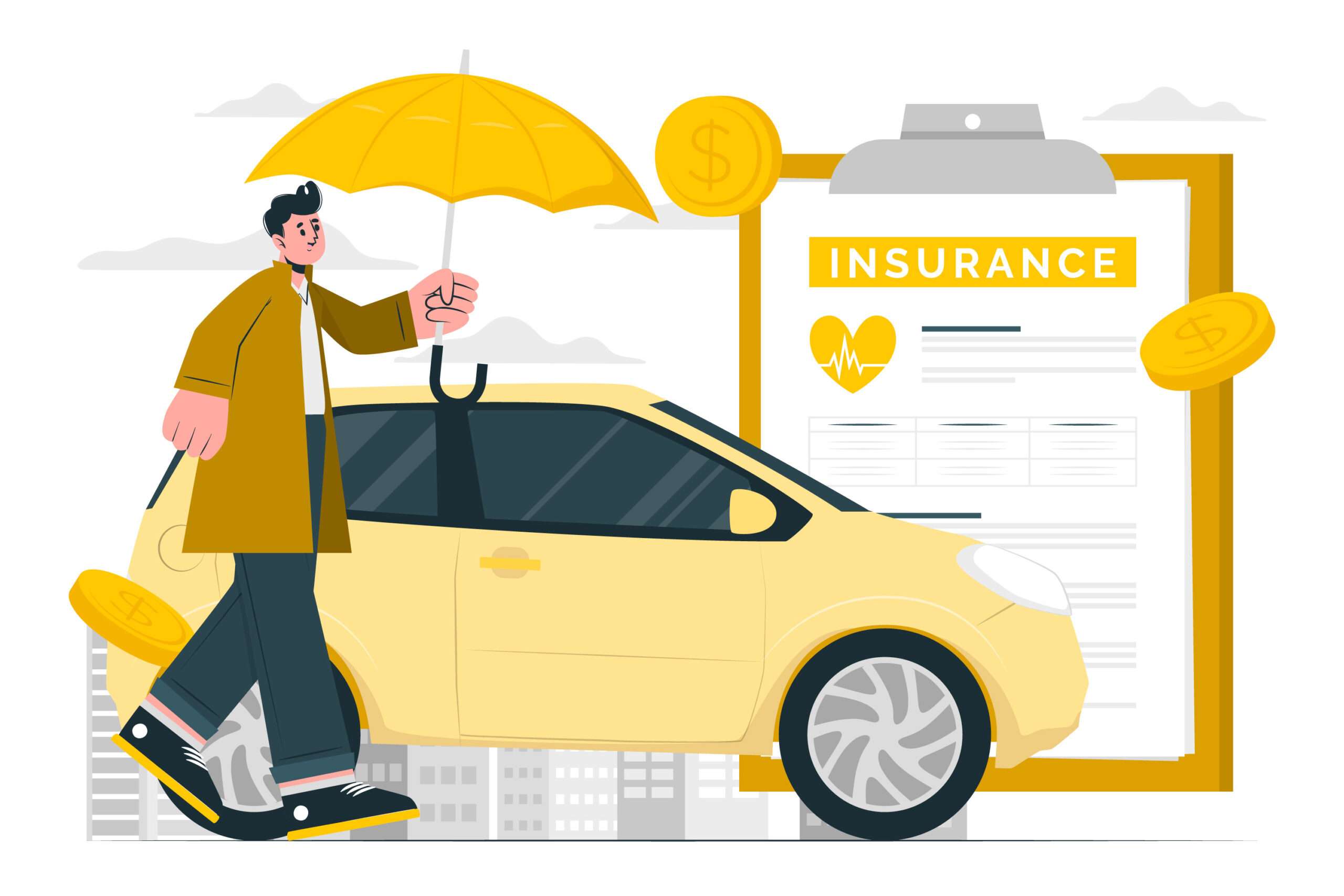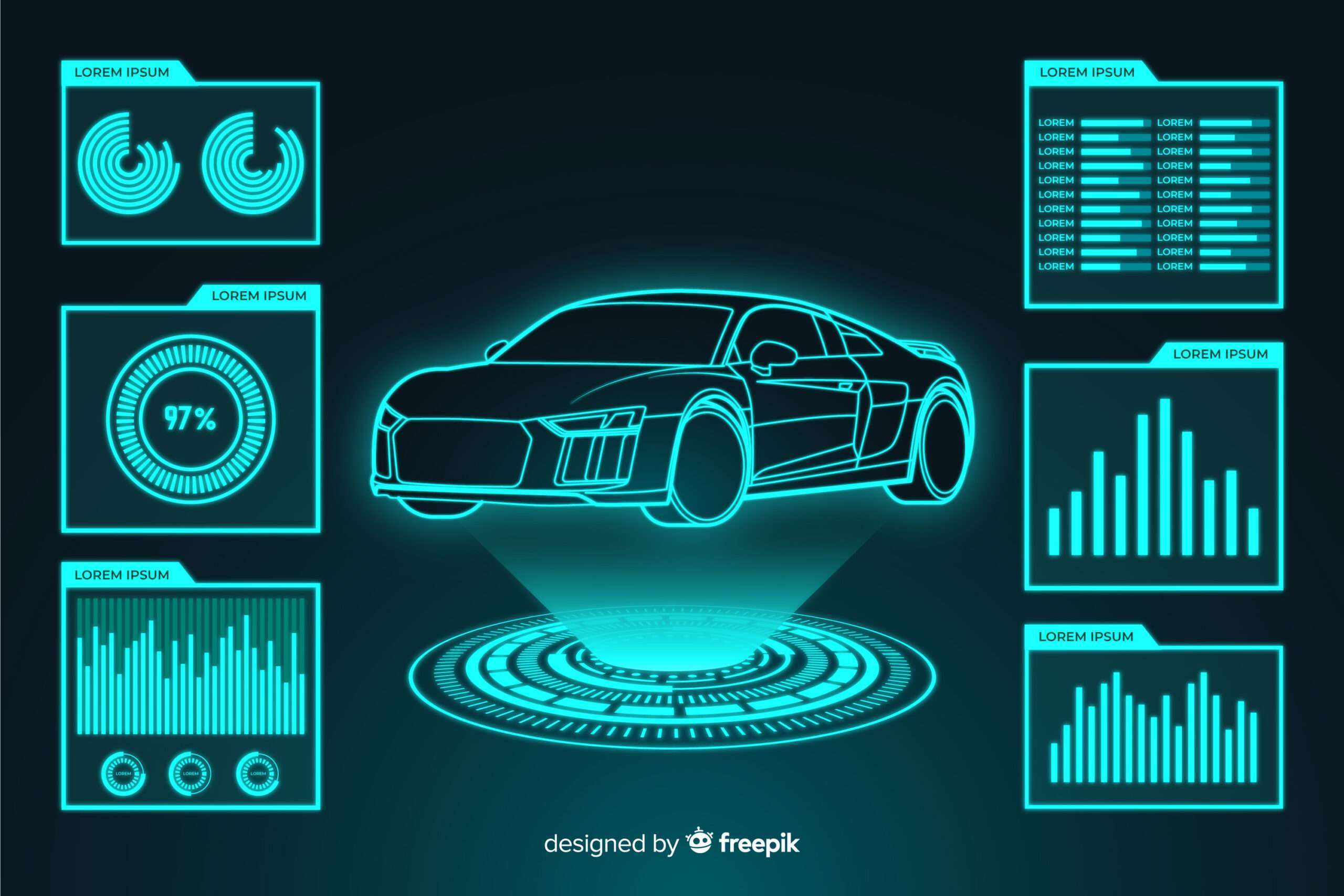We have to know what we are really choosing before we can decide on the “best” auto insurance. Different elements make up auto insurance policies, each meant to address different facets of an accident. Consider it as a personalized buffet: you select the foods most suited for your risk and protection taste.
The key elements you will come across are broken out here:
Liability Coverage: Guarding Others (and Your Wallet)
Slug: auto-insurance with liability coverage
Legal requirements in most areas and practically every auto insurance policy center on this. Should you be at fault in an accident, liability coverage guards your finances. Its main components are two:
Bodily Injury Liability: Should you be judged at fault in an accident, this covers medical bills, lost income, and suffering. Usually presented as two numbers, say $25,000/$50,000. The second ($50,000) is the maximum your policy will pay for all injuries in one accident; the first ($25,000) is the maximum your policy will pay per person injured. You are more sheltered the higher these limits are. Aim for liability limits at least equal to your net worth in a practical sense. This offers a vital layer of defense against litigation aimed at your assets.
Property Damage Liability: Should an accident occur whereby you are at fault, this covers damage to another person’s property—that of their car, fence, building, etc. Usually presented as a single figure, such as $25,000, higher limits once more provide more protection.
Backlink: See your local Department of Motor Vehicles or equivalent regulating body for further information on the legal requirements of auto insurance in your particular area. For example, the National Association of Insurance Commissioners (NAIC) website features state-specific requirements on the US scene.
Collision Coverage: Fixing Your Ride
Slug: auto-insurance with collision coverage
Regardless of who is at fault, this coverage covers damage to your car resulting from a collision with another car or object—such as a guardrail or tree. Collision coverage is practically always required whether your loan is for a car or a lease.
Collision coverage has a deductible—that is, the amount you pay out-of-pocket before your insurance starts to pay. Typical deductibles fall from $250 to $1,000 or more. Generally speaking, a higher deductible results in a lower premium, but should a claim be filed, you will pay more upfront. Choose a deductible you can reasonably afford to pay at any one moment without draining emergency funds. Generally speaking, you should have at least your deductible amount easily accessible in a separate emergency fund.
All-Around Coverage: Beyond the Collision
slug: complete coverage auto-insurance
Complete coverage guards your vehicle against damage not resulting from an accident. Consider it “other than collision” protection. This encompasses:
Interlink: Think about where you park your car and its worth when you consider thorough coverage. Comprehensive coverage becomes much more important if you live in an area with high crime rates or frequent severe storms. Later in this article, under “Assessing Your Risk Profile,” we will discuss evaluating your needs more specifically.
Uninsured or Underinsured Motorist (UM/UIM) Coverage: Shielding Yourself from Others’ Negligence
Slug: auto-insurance with uninsured-understood motorist-coverage
Often disregarded, this is a quite crucial element. Coverage under UM/UIM guards you should you be in an accident with a driver who either lacks sufficient insurance (underinsured) or has none at all.
UM Bodily Injury: Should an uninsured driver injure you, it covers both your medical bills and those of your passengers.
Kicks in when the at-fault driver’s liability limits fall short in paying for your medical bills.
UM Property Damage: Should an uninsured driver run across your car, it covers damage.
Source Link: The Insurance Information Institute (III) reports one in eight drivers lacks insurance. This amazing figure emphasizes the critical need for UM/UIM coverage. https://www.iii.org/
Medical Payments (MedPay) or Personal Injury Protection (PIP) will help to pay your medical bills.
Medical-payments-pip-auto-insurance is a slug.
These pay your passengers’ and your own medical bills independent of who is at fault.
Medical Payments (MedPay) cover up to a specified limit immediate medical expenses, including X-rays, ambulance rides, and ER visits.
Often more than MedPay, Personal Injury Protection (PIP) can cover medical bills, lost income, and even basic services like childcare should you be injured in an accident, regardless of fault. In “no-fault” states, PIP is required.
Practical Tip: MedPay or PIP seems unnecessary if you have first-rate health insurance. For deductibles, co-pays, or lost income your health insurance might not cover, they can be quite helpful, though. Before choosing these coverages, always go over your health insurance policy to learn its restrictions.
Extra Coverages Worth Thought
Slug: extra-auto-insurance coverage
Many insurance companies provide a range of add-on coverages outside the basic ones that might give further peace of mind:
- Pays for a rental car while your car is under covered claim repair.
- Coverage for roadside assistance includes towing, jump-starts, tire changes, and fuel delivery.
- Gap insurance fills in for the “gap” between the actual cash value of your car and what you still owe should your car be totaled and your loan or lease exceeds its value.
Practical Tip: If you made a small down payment or if your new car depreciates rapidly, this is particularly important.
Should your new car be totaled, this coverage covers the replacement with a brand-new car of the same make and model instead of only the depreciated actual cash value.
Standard policies may not fully value custom parts or equipment additions you have made to your car (e.g., custom wheels, sound system). This additional tool offers targeted coverage.
Beyond the Basics: Evaluating Your Own Risk Profile and Needs
slug: evaluating auto-insurance risk-profile
Knowing the building blocks now calls for some reflection. The “best” auto insurance isn’t a universal fix. Based on your unique situation, this is quite a personalized choice. Take these things into account:
Your Vehicle: Repair Costs, Age, Value
slug: vehicle-age-value-repair-costs-auto-insurance
Newer, more valuable cars usually call for more thorough coverage covering collision and comprehensive as well as maybe gap insurance. Repairing or replacing a new car is far more expensive.
Older, Lower-Value Cars: Should the annual premium for these coverages approach or surpass 10% of the car’s actual cash value, you could want to review cutting collision and comprehensive coverage. Under these circumstances, paying for repairs or replacement out-of-pocket could be more economical.
Luxury or High-Performance Cars: Because repairs are more expensive and there is more chance of theft or specialized parts, these sometimes have more premiums.
Modern safety features, including automatic emergency braking, lane departure warnings, and blind-spot monitoring, occasionally qualify you for discounts.
Practical Tip: Find out from your dealer or internet research whether particular safety features provide insurance premium savings when you purchase a new car.
Your Location, Mileage, and Driving Style
slug: driving-habits-mileage-location-auto-insurance
Long daily commutes usually mean more time on the road and a greater risk of accidents, which could affect premiums.
Many carriers give low-mileage drivers discounts. Emphasize this whether you regularly use public transportation or work from home.
Location: Generally speaking, urban areas with more traffic, crime, and accident rates have higher premiums than rural areas.
Parking Situation: Your whole rates might change depending on whether you park on the street or in a guarded garage.
Interlink: Monitoring your driving patterns, telematics, or “usage-based insurance” (UBI) programs are growingly popular. Later on in the section on “Leveraging Technology for Savings,” we will explore these creative ideas.
Your Risk Tolerance and Financial Situation: Assets
Financial-situation-assets-risk-tolerance-auto-insurance slug
Your liability limits should, as discussed, represent your net worth. Your liability coverage should be more the more assets you need to guard. A catastrophic event can cause a lawsuit aimed at your house, savings, and future income.
Strong emergency funds let you choose larger deductibles, which can greatly reduce your rates.
Risk Tolerance: Though it means paying a little more, are you someone who prefers perfect peace of mind? Alternatively, are you at ease risking more to cut premiums? Your own degree of comfort should direct your choices.
Your Driving Record: Gold—a Clean Slate
Slug: Auto insurance driven by driving records
This is maybe the most important thing affecting your auto insurance quotes.
Tickets, at-fault accidents, and DUIs will sharply raise your rates. Insurers see these as signs of more risk.
Years of Driving Experience: Generally speaking, your rates will be lower the more years you have been a licensed driver without incident. Teenagers, especially new drivers, pay the most premiums.
Completing an approved defensive driving course can occasionally result in a discount, particularly in cases of a recent violation. To be sure the course qualifies for a discount, find out from your insurer before registering.
Source Link: Many state DMVs have materials on approved defensive driving courses and safe driving habits. The National Safety Council runs several driving safety initiatives, for instance.
The Shopping Spree: Search for the Best Auto Insurance Rates
Slugs: shopping spree—best rates for auto-insurance
Shopping comes first once you know the type of coverage you require. This isn’t a job best left “set it and forget it.” The auto insurance market is ever-changing, and rates will vary greatly depending on the company as well as with time.
Get Many Quotes—Your Golden Rule
Multiple-quotes-auto-insurance, slug
Never let the first quote you come across satisfy you. Maybe the single most crucial piece of advice is this. Underwriting techniques vary among different insurers; what one company sees as a high risk, another might see as moderate.
Websites including Policygenius, Insurify, and The Zebra let you simultaneously view quotes from several companies online. A great deal of time and effort are saved by this.
Independent agents/brokers can shop on your behalf and handle several insurance companies. For finding niche coverage or if your driving history is complicated, they can be quite helpful.
Companies like Geico and Progressive market straight to consumers. Also worth getting a quote from them.
One practical tip is to make sure you are comparing like-minded quotes. Get an accurate comparison by making sure the coverage limits, deductibles, and any add-ons are exactly the same across all quotes.
Learn the Value of Discounts
Power-of-Discounts-auto-insurance: slug
Your secret weapon in reduced auto insurance rates is discounts. Always find out from your insurer about all possible savings. Here are several typical ones:
Combining your auto insurance with home, renters, or life insurance from the same company can result in notable savings. Multi-Policy/Bundling Discount Often among the biggest discounts available is this one.
Multi-Car Discount: Often times, insuring several cars under one policy yields a discount.
Good Driver/Accident-Free Discount: For several years of a clean driving record.
Good Student Discount: If young drivers (usually under 25) keep a specific GPA,
Discount for Defensive Driving Courses: As noted before, for finishing a recognized safety course.
Driving less than a specified amount of miles annually qualifies as a low mileage discount.
Discount for vehicle safety features including advanced driver-assistance systems (ADAS), anti-lock brakes, airbags, and anti-theft devices.
For choosing electronic statements or arranging regular payments, consider automatic payments or paperless billing discounts.
Loyalty Discount: For a protracted stay with the same insurer.
Certain insurers provide discounts for members of specific professions (e.g., teachers, military personnel) or organizations based on occupation or affinity group.
Consumer guides on understanding and using insurance discounts are offered by the National Association of Insurance Commissioners.
Maximize Your Deductibles
Slug: Maximize auto insurance deductible policies
We discussed this earlier, but it comes up often. One direct approach to cut your premium is to choose comprehensive coverage and a higher deductible for collision. But only act if you can afford to pay that deductible out-of-pocket should a claim arise.
Review your financial situation once a year. Practical Tip Should your emergency fund have grown, you might want to raise your deductibles to help with premium savings.
Think about your credit score—where relevant
.
Slugs: credit-score-auto-insurance
In many areas—though not all—your credit score can affect your auto insurance rates. Credit-based insurance scores help insurance companies estimate your likelihood of making a claim. Usually, a better credit score corresponds to smaller premiums.
Maintaining a good credit score requires timely bill payment, low credit use, and frequent credit report error checking.
Be truthful and accurate.
slug: honest, accurate auto insurance quotes
When you get quotes, be honest about your driving record, car, and use. Even inadvertently misrepresenting information could cause your policy to be canceled or a claim denied.
Examining and Changing Your Policy: The Annual Check-Up
slug: annual review policy for auto-insurance
One-time decisions about auto insurance are not Your needs evolve; the market does; your rates might also vary. Review your policy at least once a year, preferably before your renewal announcement shows up.
Personal Events Affecting Your Policy
Slug: impact of life events on auto-insurance
Important life events should set off a review of policies.
Purchasing a new car always immediately updates your policy.
Changing your address will affect rates greatly depending on where you live.
Marriage or Divorce: Often times, marriage results in multi-driver or multi-policy discounts. Divorce requires separating policies.
Adding a new, inexperienced driver to the household—such as teenagers—probably will significantly raise your rates. For them, look at defensive driving courses and good student discounts.
Changing Commute/Job: Tell your insurance for possible low-mileage discounts whether you start working from home or your commute is drastically shortened.
Once your car is completely paid off, you may choose to drop collision and comprehensive coverage depending on the value of the vehicle if you feel it is not needed.
Important Events (e.g., 25th Birthday, Retirement): There may be age-related discounts.
Variable Markets and Competitor Rates
Slug: competitor auto-insurance rates in fluctuating markets
Rates of insurance are always shifting. The “best” rate last year may not be today. Even if you’re satisfied with your present provider, always get fresh quotes from other insurers at renewal. This guarantees that your coverage’s pricing remains the most competitive.
Set a reminder on your calendar to begin looking for fresh quotes thirty to forty-five days before your policy renewal date.
Claim Filing: What Should One Do Should the Unthinkable Occur?
Slug: submitting an auto-insurance claim
One thing is knowing what to do when you need to use your auto insurance; another is knowing which car insurance is best. Although we wish you never have to, knowledge of the claims process is absolutely vital.

Procedures Following an Accident
Slug: follows auto-accidental steps.
Make sure you move to a safe place if at all possible. Turn on your hazard lights.
Look for injuries to both yourself and others. If someone is injured or if there is notable property damage, call emergency services—police and an ambulance.
Find out the name, phone number, insurance company and policy number, driver’s license number, and license plate number of the other driver.
Photograph and film the vehicles involved, the accident scene, road conditions, traffic signs, and any pertinent surroundings. Noting the date, time, and location,
Keep to the facts; DO NOT admit fault. Even if you believe you are to blame, never apologize or admit mistakes. Let the insurance companies decide on responsibility.
Report to Your Insurer: Get in touch with your insurance provider right away, ideally from the scene or right after. Share with them all you have learned.
File a police report. Get a copy of the accident report should police reply. File one yourself if they didn’t and your state calls for it for specified damage levels
Dealing with Your Change Agent
Working with an auto-insurance adjuster is a slog.
An insurance adjuster will be assigned to your claim once you file one. They will look at the accident, ascertain responsibility, and evaluate damages.
Be responsive by supplying all requested records and promptly and truthfully addressing their questions.
Save all correspondence you send to your insurer in a thorough notebook, including dates, times, names of people you spoke with, and summaries of exchanges.
Get Estimates: Ask several reliable body shops for estimates of repairs should your car be damaged. Your insurance might also forward their own appraiser.
Make sure you know the terms of any settlement offer and how they fit your policy coverages.
Source Link: On negotiating the claims process, the National Association of Insurance Commissioners (NAIC) also offers first-rate consumer tools. Visit https://www.naic.org/
Useful Advice for Everyday Life Beyond Policy Documents
Slugs: daily life auto-insurance practical advice
While choosing the correct auto insurance is fundamental, your daily behavior significantly helps to maintain low premiums and guarantees your protection.
Always drive carefully.
Slug: drive-safely, automatically insured
Although this seems clear-cut, it is the most useful advice. Your largest advantage for low insurance rates is a spotless driving record. Emphasize defensive driving; keep distractions (that phone away!), and follow traffic laws and speed limits. Every safe mile you travel helps to shape your insurance future.
Keep Your Car in Shape
Slug: Keep vehicle auto insurance current.
A well-kept car is less prone to mechanical failure, causing breakdown or accident involvement. Regular oil changes, tire rotations, brake checks, and fluid top-offs are about safety, not only about lifespan. Certain insurers even give discounts for cars with specific safety features in good operating order.
Boost Your Credit Score, if Relevant
Slug: raise auto-insurance credit score
As was already noted, a good credit score can result in reduced premiums. Make sure your credit report is error-free, you are paying your bills on time, and you keep low credit card balances. Though it’s a long-term game, the benefits in many spheres of your financial life are rather noteworthy.
Think about a Usage-Based Insurance (UBI) Program.
Slug: usage-based insurance programs
Many companies have telematics programs whereby a gadget (or app on your phone) tracks your driving behavior—speeding, hard braking, mileage, and time of day driven. Should you be a safe driver, these programs can provide significant savings. It’s like getting paid for good behavior!
Before signing up, look at several UBI initiatives and their data privacy policies. Make sure you are at ease with the gathered data.
Join a defensive driving program.
Slug: defensive-driving course-auto-insurance
Completing an approved defensive driving course can sometimes result in a discount even if your record is clear and help to refresh your safety skills. That’s a win-win.
Get Park Safely
slug: park securely and automatically insured
Where you park your car counts for complete coverage. Parking in a garage, a well-lit area, or a safe lot will help to lower your risk of theft or vandalism, so affecting your possible premiums.
Install Anti-Theft Mechanisms
slug: auto-insurance anti-theft devices
Should your car lack factory-installed anti-theft mechanisms, you might want to think about installing a vehicle recovery system or an alarm system. Discounts for these are offered by several insurers.
Examine and Change Your Coverage Every Year
Review-adjust-coverage-annually-auto-insurance: slug
Don’t just set it and ignore it. Your life changes; your car ages; market rates vary. Review your auto insurance needs and make sure you search for fresh quotes annually. This guarantees that, for your money, you are always obtaining the best value available.
Know Your Policy Limits and Deductibles
Slug: Know policy limits on deductibles and auto insurance.
Not merely sign without thinking twice. Spend some time learning about your policy limits—the highest your insurer will pay—what each coverage entails, and your deductibles—that is, first payments. Knowledge is power; thus, it helps to avoid unpleasant shocks later on.
Auto Insurance’s Future: What Should One Anticipate?
Slug: auto-insurance for the future
The business of auto insurance is dynamic. It is constantly changing thanks to technology, changing car features, and social movements. Here’s a taste of what’s ahead:
Liability Changing Autonomous Vehicles
slug: autonomous-vehicles-liability-auto-insurance
The liability in accidents will change as self-driving cars proliferate. Will the car manufacturer be answerable for anything? The person who developed the software? The vehicle’s owner? This basic shift will reshape the way auto insurance policies are written.
Hyperpersonalism and Telematics
Slug: hyperpersonalized telematics-auto-insurance
Using usage-based insurance programs will become even more complex since they provide quite exact pricing depending on particular routes, driving behavior, and even time of day. Your driving might cause your premium to change instantly.
Cyberthreats and Vehicle Connectivity
slug: cyber-risks vehicle-connectivity-auto-insurance
Cybersecurity issues become a worry as more cars are linked to the internet. Might a hacked car cause an accident? Insurers will have to handle these new hazards.
Subscription and On-Demand Models
slug: on-demand, subscription-based auto-insurance
More flexible insurance options, including pay-per-mile or subscription-based insurance that can be stopped when the car isn’t in use, could be on display. This fits the growing ride-sharing and car-sharing economies.
Interlink: Growing shared mobility services raise special insurance questions. If you are thinking about ride-sharing from your own car, be sure you are aware of the particular insurance requirements and restrictions. Many basic personal auto insurance plans won’t cover you while driving for hire.
The Bottom Line: Your Path of Empowered Auto Insurance Discovery
Slug: basic, bottom-line auto-insurance
Selecting the best auto insurance is not based on determining the least expensive solution. It’s about choosing the appropriate solution that strikes a mix between price and thorough protection. It’s about knowing your risks, knowing your choices, and aggressively controlling your policy.
From decoding jargon and evaluating your needs to strategically shopping for quotes and using discounts, you turn from a passive consumer into an empowered decision-maker by following the ideas in this comprehensive guide.
Remember, for many people your car is a lifeline rather than only a means of transportation; it is an investment. Using the correct auto insurance helps you to protect both yourself and your financial situation rather than a cost. Drive carefully, keep educated, and savor the peace of mind that results from being really safe on the road.
source:
Investopedia—What Does Auto Insurance Cover?:
- Link: https://www.investopedia.com/what-does-auto-insurance-cover-7495827
- Link: https://www.iii.org/article/auto-insurance-jargon-buster
- Link: https://www.nationwide.com/lc/resources/home/articles/insurance-glossary














